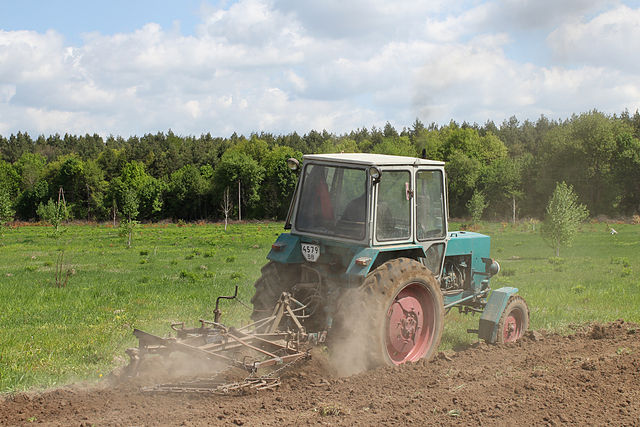Farmers in Omusati Region in Namibia have received more than 42 tractors courtesy of Namibia Agricultural Mechanisation and Seed Improvement Project (NAMSIP). This is the latest gesture in a nationwide farm equipment procurement process that boasts 350 tractors and 380 walking tractors.
While handing over the machinery, the executive director in the Agriculture, Water and Land Reform Ministry, Ndiyakupi Nghituwamata enumerated the procurement. She said that so far the state has awarded 350 tractors countrywide, 42 of which to Omusati.
The executive director cited lack of timely access to farm equipment as a major drag to achieving national food security.
She mentioned some of the missing inputs for rural farmers as “seeds, farm machinery and equipment.”
Nghituwamata said these implements help most rural Namibians manage land preparation and weeding efficiently, especially in rain-dependant agricultural areas.
Training Tractor Operators
Before the tens of tractors come into deployment, the agriculture ministry will have trained 152 equipment operators. By December 27, 18 of Omusati’s 53 such farmer-operators had received the mandatory 30-day initial training.
The government will also check the viability of the area of use. This is to ensure that the machinery will be suited to the region’s terrain so as to reduce damage.
Addressing trainees during an earlier ceremony on December 16, the Governor for Kavango East, Bonifasius Wakudumo tackled the damage issue. He advised against reckless equipment damage by operators who bank on immediate government’s repair services.
Mechanisation and Seed Certification
Hand-in-hand with the mechanisation drive across all 14 administrative regions of Namibia is a seed certification program.
After buying the 350 tractors, the government is now focusing on procuring seeds that are resilient to the regional climate.
NAMSIP is at the heart of the certification process and has registered 777 farmers alongside 8 co-ops to grow the seeds. By December 18, the project had amassed 1,057 tonnes of certified seeds and was aiming to multiply them to ensure perpetual food security.
It is in mechanisation however that NAMSIP has left a lasting legacy. Around 4,519 persons will get a temporary income either as tractor operators or trainers.
Most of all, farmers who have been losing crops from lack of certified seeds or timely ploughing will now be assured of harvests.
